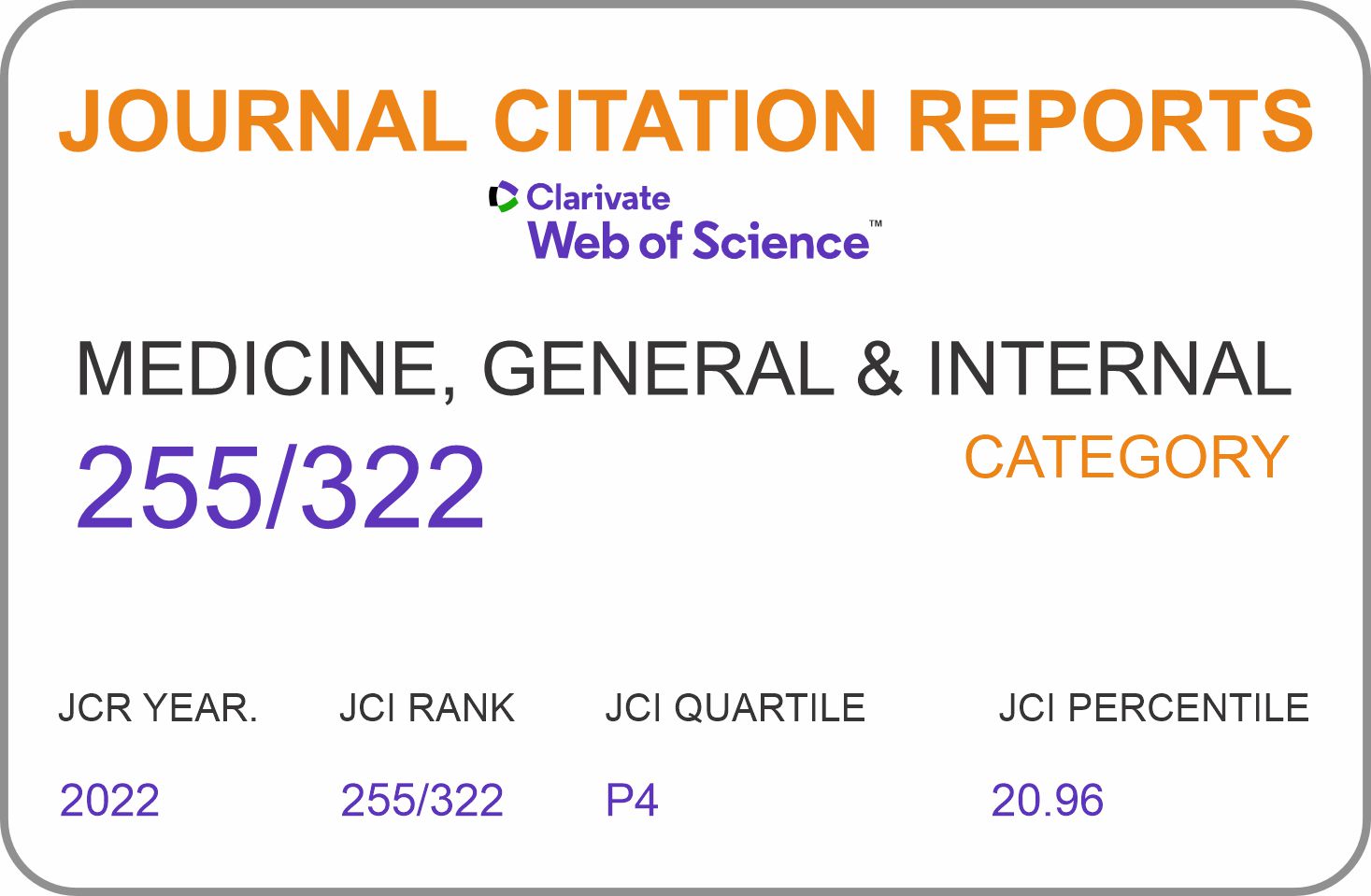Epidemiological and molecular profile of lung cancer patients in a referral cancer center in Lima, Peru
DOI:
https://doi.org/10.35434/rcmhnaaa.2023.163.1805Keywords:
Mutation, epidemiology, lung neoplasia, PeruAbstract
Background: According to GLOBOCAN estimates, in 2020, lung cancer was the second most frequent cancer and epidemiological information is needed in Latin American countries. The objective was to describe the epidemiological and molecular characteristics of lung cancer patients from a referral clinic in Lima, Peru. Material and methods: A retrospective cohort study was conducted to characterize the epidemiological and molecular profile of lung cancer patients attended at a referral cancer center in Peru during 2018 to 2021. Variables such as age, sex, histology, staging and mutation were reported. In the descriptive analysis, frequencies and percentages were shown for categorical variables. For numerical variables, the best measure of central tendency and dispersion was reported. Results: A total of 225 patients with a diagnosis of lung cancer were observed. EGFR gene mutation was the most frequently detected (45.3%); and within them exon 19 deletion (55.7%). The most frequent histological type was adenocarcinoma with 180 patients (85.7%). Of the total number of patients with EGFR mutation, 77.8% received treatment with a tyrosine kinase inhibitor (osimertinib, erlotinib, afatinib) and 15.9% received immunotherapy (pembrolizumab, atezolizumab, nivolumab). Conclusions: The predominant mutation was EGFR, the most frequent histologic type was adenocarcinoma and most patients received treatment with a tyrosine kinase inhibitor.
Downloads
Metrics
References
Sung H, Ferlay J, Siegel RL, Laversanne M, Soerjomataram I, Jemal A, et al. Global Cancer Statistics 2020: GLOBOCAN Estimates of Incidence and Mortality Worldwide for 36 Cancers in 185 Countries. CA: a cancer journal for clinicians. 2021;71(3):209-49.
Bray F, Ferlay J, Soerjomataram I, Siegel RL, Torre LA, Jemal A. Global cancer statistics 2018: GLOBOCAN estimates of incidence and mortality worldwide for 36 cancers in 185 countries. CA: a cancer journal for clinicians. 2018;68(6):394-424.
Ramos W, La Cruz-Vargas D, Jhony A. Presentación del documento técnico “Análisis de la situación del cáncer en el Perú, 2018”. Revista de la Facultad de Medicina Humana. 2020;20(1):10-1.
Malhotra J, Malvezzi M, Negri E, La Vecchia C, Boffetta P. Risk factors for lung cancer worldwide. The European respiratory journal. 2016;48(3):889-902.
McDermott J, Jimeno A. Pembrolizumab: PD-1 inhibition as a therapeutic strategy in cancer. Drugs of today (Barcelona, Spain : 1998). 2015;51(1):7-20.
Castellanos EH, Horn L. Immunotherapy in Lung Cancer. Cancer treatment and research. 2016;170:203-23.
Yoneda K, Imanishi N, Ichiki Y, Tanaka F. Treatment of Non-small Cell Lung Cancer with EGFR-mutations. Journal of UOEH. 2019;41(2):153-63.
Ly AC, Olin JL, Smith MB. Alectinib for advanced ALK-positive non-small-cell lung cancer. American journal of health-system pharmacy : AJHP : official journal of the American Society of Health-System Pharmacists. 2018;75(8):515-22.
Payet E, Pérez P, Poquioma E, Díaz E. Registro de cáncer de lima metropolitana. incidencia y mortalidad 2010–2012. Lima: Instituto Nacional de Enfermedades Neoplásicas. 2016.
de Koning HJ, van der Aalst CM, de Jong PA, Scholten ET, Nackaerts K, Heuvelmans MA, et al. Reduced Lung-Cancer Mortality with Volume CT Screening in a Randomized Trial. The New England journal of medicine. 2020;382(6):503-13.
Field JK, Vulkan D, Davies MPA, Baldwin DR, Brain KE, Devaraj A, et al. Lung cancer mortality reduction by LDCT screening: UKLS randomised trial results and international meta-analysis. The Lancet regional health Europe. 2021;10:100179.
Comprehensive molecular profiling of lung adenocarcinoma. Nature. 2014;511(7511):543-50.
George J, Lim JS, Jang SJ, Cun Y, Ozretić L, Kong G, et al. Comprehensive genomic profiles of small cell lung cancer. Nature. 2015;524(7563):47-53.
Inamura K. Lung Cancer: Understanding Its Molecular Pathology and the 2015 WHO Classification. Frontiers in oncology. 2017;7:193.
Arrieta O, Cardona AF, Martín C, Más-López L, Corrales-Rodríguez L, Bramuglia G, et al. Updated Frequency of EGFR and KRAS Mutations in NonSmall-Cell Lung Cancer in Latin America: The Latin-American Consortium for the Investigation of Lung Cancer (CLICaP). Journal of thoracic oncology : official publication of the International Association for the Study of Lung Cancer. 2015;10(5):838-43.
Arrieta O, Cardona AF, Bramuglia G, Cruz-Rico G, Corrales L, Martín C, et al. Molecular Epidemiology of ALK Rearrangements in Advanced Lung Adenocarcinoma in Latin America. Oncology. 2019;96(4):207-16.
Postmus PE, Kerr KM, Oudkerk M, Senan S, Waller DA, Vansteenkiste J, et al. Early and locally advanced non-small-cell lung cancer (NSCLC): ESMO Clinical Practice Guidelines for diagnosis, treatment and follow-up. Annals of oncology : official journal of the European Society for Medical Oncology. 2017;28(suppl_4):iv1-iv21.
Costa SNL, Fernandes F, Santos CAD, Souza DLB, Barbosa IR. Gender and Regional Differences in Lung Cancer Mortality in Brazil. Asian Pacific journal of cancer prevention : APJCP. 2020;21(4):919-26.
Tamási L, Horváth K, Kiss Z, Bogos K, Ostoros G, Müller V, et al. Age and Gender Specific Lung Cancer Incidence and Mortality in Hungary: Trends from 2011 Through 2016. Pathology oncology research : POR. 2021;27:598862.
Ruiz R, Galvez-Nino M, Poquioma E, Limache-García A, Amorin E, Olivera M, et al. Lung Cancer in Peru. Journal of thoracic oncology : official publication of the International Association for the Study of Lung Cancer. 2020;15(6):891-8.
Downloads
Published
How to Cite
Issue
Section
Categories
License
Copyright (c) 2023 Rodrigo Motta Guerrero, Yesenia Huerta-Collado, Virgilio E Failoc-Rojas, Diego C Cabezas Orellana, Alejandro Leon, Ana Calle-Villavicencio, Alicia Torres-Mera, Mario J Valladares-Garrido, Carlos Aliaga Macha, Carlos Carracedo

This work is licensed under a Creative Commons Attribution 4.0 International License.















